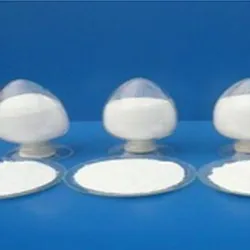
rubber solvent
Understanding Rubber Solvents An Essential Component in the Industry
Rubber solvents play a crucial role in the rubber manufacturing process, acting as a medium to dissolve rubber compounds for various applications. These solvents are integral in producing rubber products such as tires, seals, and gaskets, which are essential in numerous industries, including automotive, aerospace, and construction. Understanding the types, properties, and applications of rubber solvents can provide insights into their significance in the rubber industry.
Rubber solvents are typically organic compounds that can effectively dissolve or swell rubber elastomers
. The choice of solvent depends on the type of rubber being processed and the desired properties of the final product. Commonly used rubber solvents include toluene, xylene, and cyclohexane. These solvents are characterized by their ability to enhance the flow and processing of rubber, enabling manufacturers to achieve uniform mixtures and improve product consistency.The primary function of rubber solvents is to facilitate the mixing of rubber with additives such as fillers, accelerators, and antioxidants. These additives enhance the mechanical properties of the rubber, improve its resistance to aging, and ensure better performance in end-use applications. By using a solvent to prepare the rubber compound, manufacturers can achieve a homogenous blend, which is vital for producing high-quality rubber products.
rubber solvent

However, the use of rubber solvents comes with challenges, particularly concerning environmental and health impacts. Many organic solvents are volatile and can emit harmful fumes, which pose risks to the health of workers and the environment. As a result, the rubber industry is increasingly adopting safer alternatives and more sustainable practices. Water-based solvents and bio-based alternatives are gaining popularity, driven by a growing emphasis on reducing solvent emissions and promoting greener manufacturing processes.
In addition to health and safety concerns, regulatory compliance also forces manufacturers to be mindful of their solvent choices. Standards and regulations aimed at limiting the use of hazardous solvents require companies to innovate and seek less harmful options to remain compliant while ensuring product quality.
In conclusion, rubber solvents are an indispensable part of the rubber manufacturing process, enabling the effective blending of rubber and additives. Their role enhances the production of various rubber products essential in everyday life. However, the industry must continually adapt to the evolving landscape of environmental regulations and health standards, driving innovation towards safer and more sustainable solvent alternatives. As the demand for high-quality rubber products continues to grow, so too does the importance of understanding and improving the use of rubber solvents in manufacturing.
-
nitrile-rubber-honoring-strict-production-standardsNewsAug.22,2025
-
aspartame-ingredients-honoring-food-safety-valuesNewsAug.22,2025
-
fertilizer-for-balanced-plant-nutritionNewsAug.22,2025
-
cyanide-gold-processing-with-high-purity-additivesNewsAug.22,2025
-
formic-acid-in-textile-dyeing-applicationsNewsAug.22,2025
-
aluminum-hydroxide-gel-in-skincare-productsNewsAug.22,2025
-
Regulatory Compliance for Global Mining Chemicals UseNewsAug.12,2025
Hebei Tenger Chemical Technology Co., Ltd. focuses on the chemical industry and is committed to the export service of chemical raw materials.
-

view more DiethanolisopropanolamineIn the ever-growing field of chemical solutions, diethanolisopropanolamine (DEIPA) stands out as a versatile and important compound. Due to its unique chemical structure and properties, DEIPA is of interest to various industries including construction, personal care, and agriculture. -

view more TriisopropanolamineTriisopropanolamine (TIPA) alkanol amine substance, is a kind of alcohol amine compound with amino and alcohol hydroxyl, and because of its molecules contains both amino and hydroxyl. -

view more Tetramethyl Thiuram DisulfideTetramethyl thiuram disulfide, also known as TMTD, is a white to light-yellow powder with a distinct sulfur-like odor. It is soluble in organic solvents such as benzene, acetone, and ethyl acetate, making it highly versatile for use in different formulations. TMTD is known for its excellent vulcanization acceleration properties, which makes it a key ingredient in the production of rubber products. Additionally, it acts as an effective fungicide and bactericide, making it valuable in agricultural applications. Its high purity and stability ensure consistent performance, making it a preferred choice for manufacturers across various industries.





